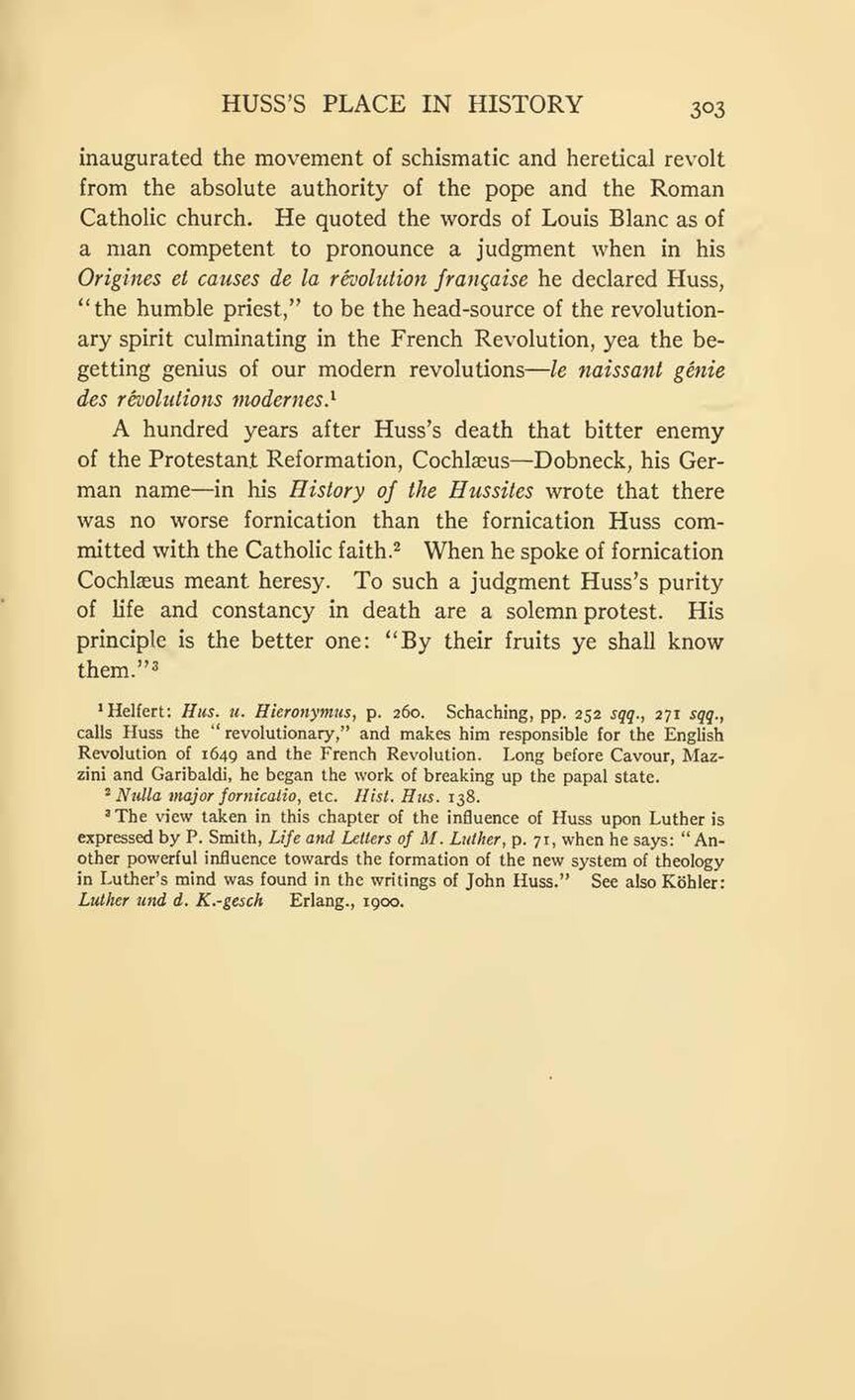inaugurated the movement of schismatic and heretical revolt from the absolute authority of the pope and the Roman Catholic church. He quoted the words of Louis Blanc as of a man competent to pronounce a judgment when in his Origines et causes de la révolution française he declared Huss, “the humble priest,” to be the head-source of the revolutionary spirit culminating in the French Revolution, yea the begetting genius of our modern revolutions—le naissant génie des révolutions modernes.[1]
A hundred years after Huss’s death that bitter enemy of the Protestant Reformation, Cochlæus—Dobneck, his German name—in his History of the Hussites wrote that there was no worse fornication than the fornication Huss committed with the Catholic faith.[2] When he spoke of fornication Cochlæus meant heresy. To such a judgment Huss’s purity of life and constancy in death are a solemn protest. His principle is the better one: “By their fruits ye shall know them.”[3]
- ↑ Helfert: Hus, u. Hieronymus, p. 260. Schaching, pp. 252 sqq., 271 sqq., calls Huss the “revolutionary,” and makes him responsible for the English Revolution of 1649 and the French Revolution. Long before Cavour, Mazzini and Garibaldi, he began the work of breaking up the papal state.
- ↑ Nulla major fornicatio, etc. Hist. Hus. 138.
- ↑ The view taken in this chapter of the influence of Huss upon Luther is expressed by P. Smith, Life and Letters of M. Luther, p. 71, when he says: “Another powerful influence towards the formation of the new system of theology in Luther’s mind was found in the writings of John Huss.” See also Köhler: Luther und d. K.-gesch Erlang., 1900.
